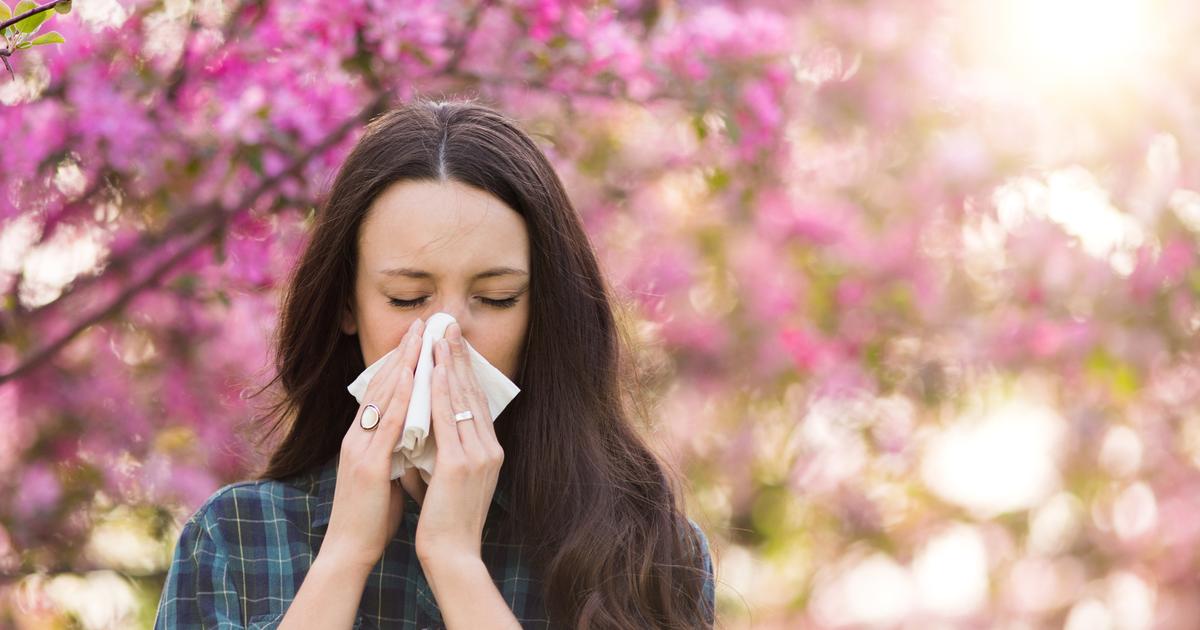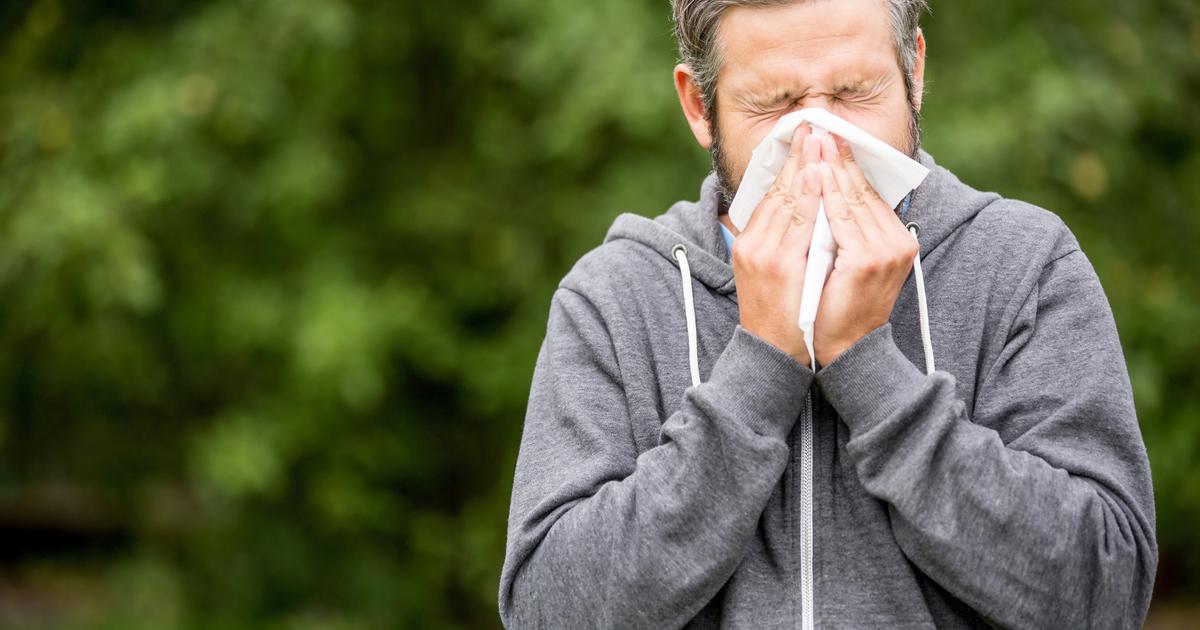No respite for allergy sufferers.
After the wave of birch pollen, it is the turn of the grasses to tickle the nostrils of the French.
Eleven metropolitan departments are classified as “
high risk
” red by the National Aerobiological Surveillance Network (RNSA) this week.
Brittany, Pays de la Loire, Vienne as well as Corsica and Var are particularly concerned.
All these territories currently accumulate several types of allergenic pollen: oaks, birches and grasses.
In the Var, the risk of allergies is also high for parietaria pollen (urticaceae), specifies the RNSA.
Their simultaneous presence is explained by the period;
the birch pollen season is soon coming to an end while the grass pollen season is beginning.
Read alsoWhy allergies are more and more numerous
Grasses usually grow along roadsides and in fields.
These herbaceous plants provide an essential part of the diet through cereals (wheat, rice, maize, barley and millet) and sugar cane.
Several of them are particularly allergenic, such as rye, oats and wheat.
These pollens are enclosed in “
little bags
”, invisible to the naked eye, and are full of allergenic molecules.
When good weather arrives, accompanied by rising temperatures, these little bags explode, diffusing the fine particles into the atmosphere.
They can then be transported over tens of kilometers by the wind, or remain suspended in the air.
50% of French people with allergies by 2050
When pollen comes into contact with the respiratory tract and mucous membranes, the immune system reacts through a series of variable symptoms: sneezing, irritated throat and eyes, stuffy nose, itching... Pollen is the first source of respiratory allergy in France and grasses are one of the most allergenic pollens.
In France, nearly 25% of people suffer from respiratory allergies, according to the RNSA.
In 1962, they were only 3% to be allergic and will probably be "
50% by 2050
", according to the World Health Organization.
Read alsoAllergies: a profusion of useful products and gadgets… or not
This increase in allergic cases over time is partly explained by the rise in temperatures, which lengthens the pollen period, and by pollution.
The latter increases the allergenic power of pollens and exacerbates the symptoms in humans.
According to the Weather Channel*, only rain washes the atmosphere and deposits pollen on the ground.
The stormy rains forecast for the weekend will therefore certainly calm the allergies of the French for a weekend.
*The Weather Channel is a property of the Figaro group.









